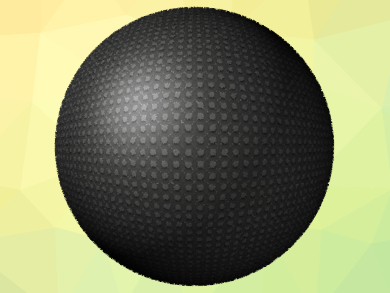Lithium–sulfur batteries have a high theoretical specific capacity and energy density. However, sulfur is a poor conductor and lithium polysulfides (LiPSs) can dissolve in organic electrolytes. These problems hinder the practical application of Li–S batteries.
Jizhao Zou, Xierong Zeng, Shenzhen University, China, and colleagues have developed hollow carbon nanospheres (HCNs) decorated with Titanium nitride (TiN) nanoparticles. These nanospheres can encapsulate sulfur/LiPSs, which provides enhanced electrical conductivity and prevents the dissolution of LiPSs in the electrolyte. TiN is both highly conductive and anchors LiPSs to the material.
The team first prepared poly(aniline-copyrrole) (PACP) hollow nanospheres, which were coated with a TiO2 layer. The coated nanospheres were then heated to 1200 °C in a microwave furnace under an N2 atmosphere to give HCNs@TiN nanospheres.
The nanospheres were then loaded with sulfur and used as an electrode material for lithium–sulfur batteries. The electrodes provide a high initial discharge capacity, as well as a good rate performance and cycling stability. The material significantly outperforms unmodified HCNs without TiN.
- Microwave-assisted rapid preparation of hollow carbon nanospheres@TiN nanoparticles for lithium–sulfur batteries,
Jianxin Tu, Hejun Li, Jizhao Zou, Shaozhong Zeng, Qi Zhang, Liang Yu, Xierong Zeng,
Dalton Trans. 2018, 47, 16909–16917.
https://doi.org/10.1039/c8dt04095h



